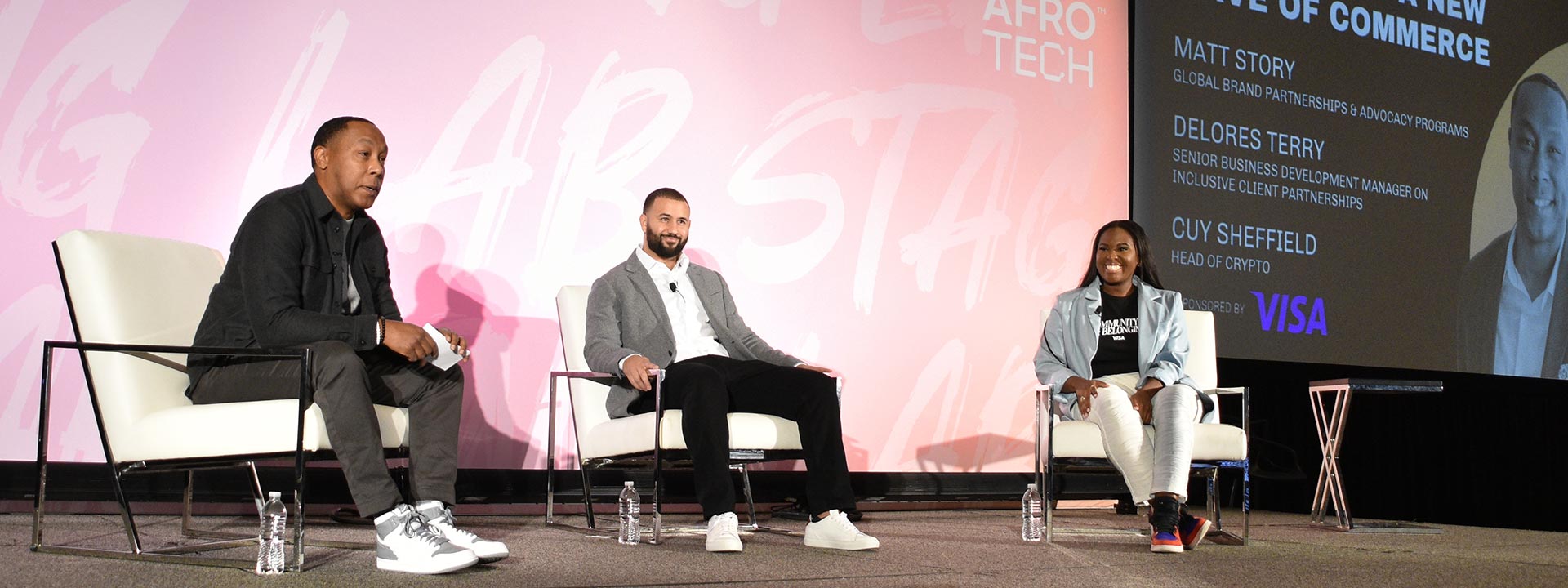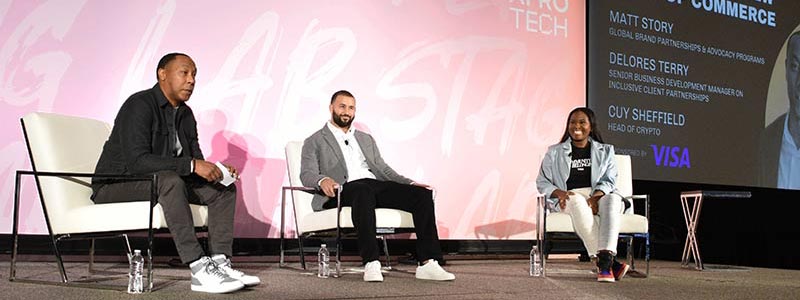

I joined Visa’s Inclusive Client Partnerships (ICP) Team after a two-year rotational program called the Visa Leadership Accelerator Program (formerly known as the New Graduate Development Program). The program gave me the opportunity to explore different aspects of our business — from sales to product to Visa Business Solutions, working with B2B fintechs. As I was ending my rotation, a racial justice awakening was erupting in America. The nation took a collective pause, as if to say, “things have to change now.” For myself, I paused as well and realized, I needed more mission intertwined into my career. That’s when I joined ICP.
The ICP team was born out of the realization that in addition to Visa’s Stand Together commitments, which promise that purpose and inclusion would be threaded throughout our organization, Visa needed a dedicated business unit to ensure the fintech partnerships and the founders of those fintechs were supported in the right way. Visa’s purpose is to uplift everyone everywhere by being the best way to pay and be paid. As a global payments technology network helping millions of people move money around the world each day, providing access and advancing inclusive, equitable and sustainable growth is not only a business imperative, but it’s also the right thing to do — especially for underserved communities.
Today, the Black community represents $1.4 trillion in buying power.¹ Yet, a good number remain unbanked. What’s more, many folks in the Black community live in “banking deserts,” meaning they live in areas with no easily accessible branch. This is not only a huge equality gap, but also an untapped opportunity for fintechs to help underserved communities both participate in the digital economy and build generation wealth.
This is where Visa’s ICP team comes in.
We’re able to leverage the global scale of our network, our products, our financial resources and our collective employee base to help and support minority-led fintechs. Our goal is to partner with a wide variety of organizations that support underserved communities (i.e. Black, Latinx, LGBTQ+ and women business founders) to deploy card programs. We offer expertise, prove financial support and make the external connections necessary for early stage businesses to have a shot at success.
When I talk to founders, the most common challenge I hear about is lack of access to funding. While a lot of work is being done at Visa and other companies to tackle funding gaps in the ecosystem, still less than 2% of venture capital funding goes to minority founders.² The numbers are even worse for women and Black founders. We are able use the power of Visa’s brand and reputation to open doors for our clients and partners — to advocate for them and help create the connections and opportunities they need to gain access to capital and bring their important products and services to market.
But making connections is just the first step for minority-lead fintechs. To keep up with the pace of change in our ever-evolving industry, we also recognize the importance of ongoing education, relationship-building and resources. I point early-stage startups to our Fintech Fast Track Program, which can help them get up and running quickly with Visa, no matter what stage the business may be in. And I encourage consumers to do their own research by following and supporting organizations like Bank Black and FinEd50, who promote financial advocacy, literacy and education in underserved communities.
It is rewarding to work for a company that uses its privilege to uplift communities who have systemically been left behind. As a member of the ICP team, I am encouraged and empowered to think differently on a daily basis — to make bold decisions and not take “no” for an answer. That is how I can make an impact and be part of the change we want to see.